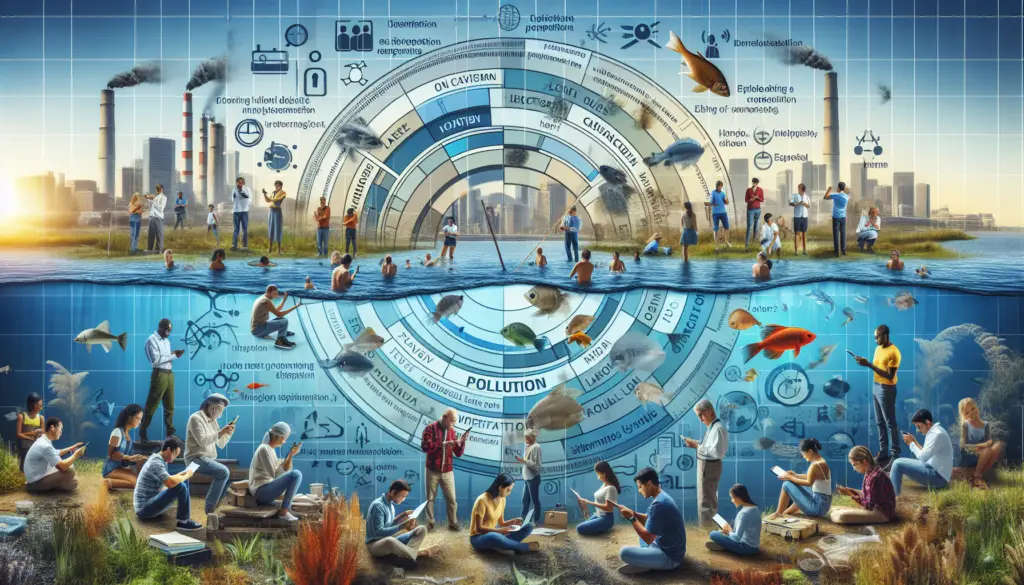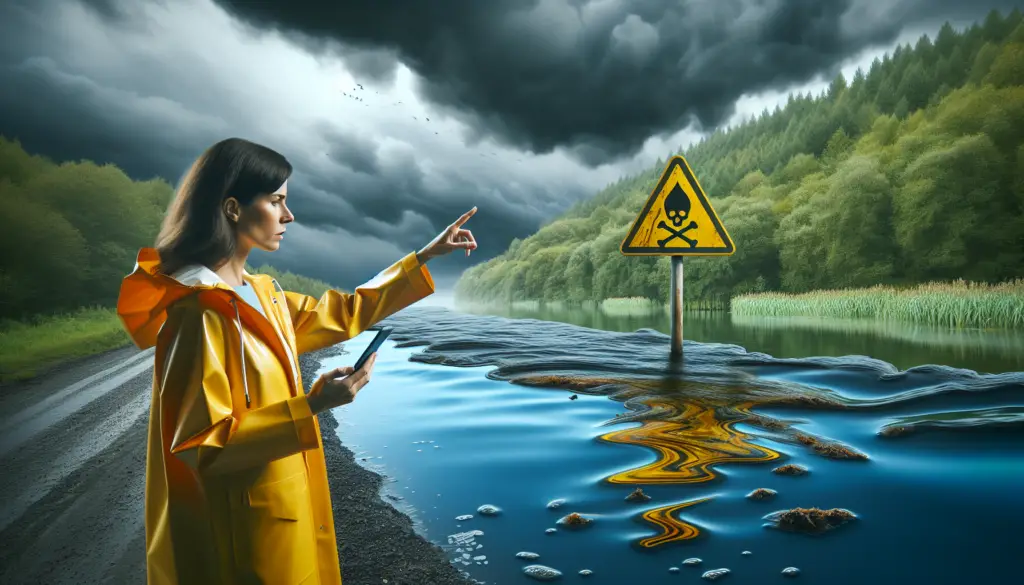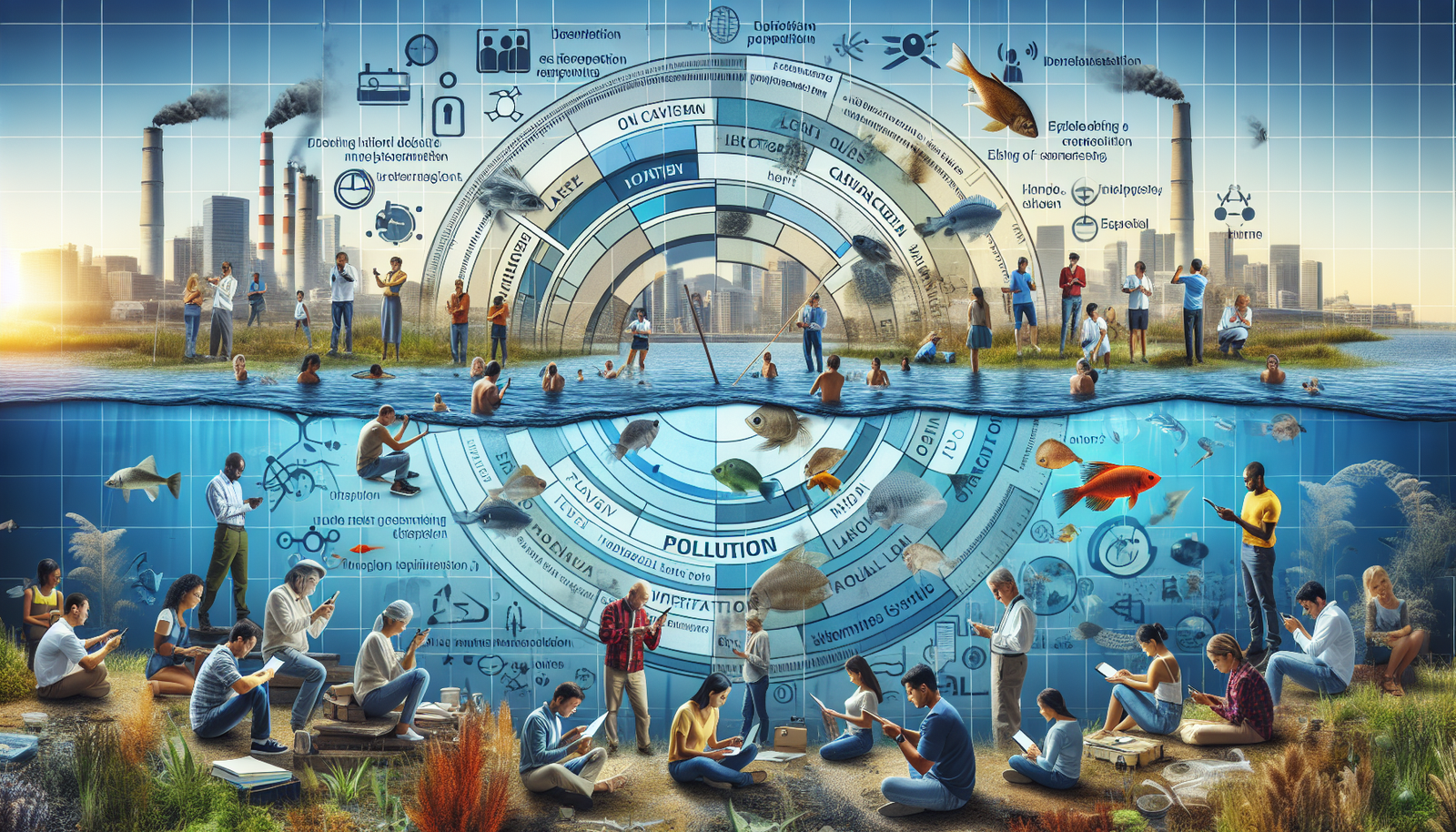As an ambassador of our planet, imagine you’ve seen an undesirable scene on the water – a slick of oil, a rainbow sheen, or maybe even a heaping pile of trash – and you’re left with an unsettling feeling. How could you transform that feeling into action? Let’s journey together through a meticulous process named “How To Report Pollution Incidents On The Water”. Your role is pivotal in protecting our precious blue treasure from the grime of pollution. This article opens the gateway to turn your anxiety into mindful action, it becomes your guide to becoming a savior of seas, rivers, and lakes by shedding light on the correct ways to report such incidents to authorities.

Understanding the Importance of Reporting Pollution
It is alarmingly easy to live blissfully unaware of the importance of reporting pollution. People often think it’s someone else’s problem, or that the damage is already done and nothing can be done about it. But, picture yourself floating along in a boat, the sun glittering on the water as all manner of life bustles around beneath you. Then, the water turns brackish, refuse bobbing in the waves, fish floating lifelessly along the water surface. This disturbing scene illustrates just why reporting pollution is vital.
Why reporting pollution is crucial
Every single day, natural water bodies around the world face serious pollution threats. Unscrupulous industries, callous individuals, even accidents can spew harmful pollutants into water—an act that distorts delicate ecosystems. Worse, it threatens the health of humans and animals alike. By reporting incidents of pollution, you play a pivotal role in preventing the play-out of this grim story. Reporting acts as a catalyst for inspection, clean-up, and potential legislation to prevent future incidents.
Impact of water pollution on the environment
Water pollution isn’t just unpleasant to look at; the impacts of such pollution reverberate through entire ecosystems. Chemical pollutants leach into water bodies affecting the pH balance, poisoning marine life, and causing harmful algal bloom. Ripples of these changes spread out to the surrounding land, air, and organisms.
Consequences of not reporting pollution incidents
Failing to report a pollution incident essentially equates to turning a blind eye towards environmental degradation. No action is taken swiftly to rectify the situation, and the pollution continues to spread, prolonging and intensifying the damage. By the time anyone takes notice, the cost and effort required to restore the affected area increases exponentially, and in some cases, irreversible damage is done.
Identifying Different Types of Water Pollution
Several kinds of villains lurk in the murky depths of polluted waters. Identifying them takes a discerning eye and an understanding of the types of water pollution.
Physical pollution
This is a pollution you can touch or see, like trash or soil erosion. Plastic, in particular, is a notorious physical pollutant that causes harm to aquatic creatures.
Chemical pollution
These pollutants are silent but deadly. Pesticides, heavy metals, or chemicals from factories can silently seep into water bodies, altering the water chemistry and harming life within.
Biological pollution
Biological pollution occurs when organisms, such as invasive species or disease-causing bacteria and viruses, enter a water body. These can disrupt ecosystems and pose a health risk to humans and animals.
Radiological pollution
This type of pollution involves the presence of radioactive substances in the water. These substances can be extremely harmful to all life forms due to their mutagenic and carcinogenic effects.
Thermal pollution
Often overlooked, thermal pollution happens when industries release heated water into rivers or seas. This sudden temperature change can negatively impact aquatic life, particularly cold-blood creatures.
Observing the Signs of Water Pollution
You don’t need to be a scientist to pick up on the symptoms of water pollution. Here’s what to look out for.
Discoloration of water
If the water’s hue suddenly shifts, something’s wrong. Look for unusual changes in color, even if it’s slight.
Change in smell or taste
For folks who rely on surface or groundwater for drinking, any change in taste or a foul odor should raise alarm bells.
Unusual amount of dead fish
A sudden increase in dead fish washing up on shorelines is an ominous sign of possible water pollution— a signal that the water’s made life untenable for them.
Presence of oil or other unusual substances
An oily sheen on water or the presence of unusual substances like foam is another sign you should look out for.

Documenting the Pollution Incident
Once you observe a sign of water pollution, it’s crucial to properly document the incident before reporting it. Here’s how:
Taking photographs or videos
Capture clear, comprehensive footage of the polluted area, ensuring any visible pollution is in the frame.
Noting the location
Record as accurately as possible the location of the incident. If you’re on a boat, note your coordinates; on land, the nearest landmark or address.
Recording the date and time
The exact time and date can help investigators understand the tides, weather patterns, or other conditions that may have influenced the incident.
Documenting the physical conditions at the site
Make a note of water currents, wind direction, or any other physical condition at the site that may have contributed to the pollution.
Safe Practices While Gathering Information
While documenting the incident, it’s crucial to prioritize your safety.
Keeping a safe distance
Stay a safe distance from the polluted water, especially if the pollutant is unknown or potentially harmful.
Not touching or ingesting the water
Avoid touching or accidentally ingesting the water, for it could contain harmful substances.
Protecting your skin and eyes
Wear gloves and eye protection if possible, to prevent accidental contact.
Alerting others to stay away from the polluted area
Let others know about the pollution so they can avoid exposure to potential hazards.
Whom to Report Water Pollution Incidents to
Once you have your information, it’s time to alert the authorities.
Local environmental agency
The first call should be to your local environmental agency, who can respond and investigate more quickly.
National pollution reporting hotlines
National hotlines exist in many countries. They have resources to handle pollution incidents and the authority to demand action.
Nonprofit organizations focusing on water conservation
Organizations dedicated to water conservation may have connections and resources to help address the issue.
Law enforcement agencies in certain circumstances
In drastic situations, like industrial waste dumping, you might need to engage law enforcement.
How to Report the Incident to the Authorities
Once you know who to report to, here are the ways to get in touch:
Making a phone call
Often the quickest way to report. Be ready to provide key details.
Sending an email or letter
A written record can be helpful, especially when accompanied by photo or video evidence.
Filing an online report
Some agencies offer online reporting portals— a convenient way to report pollution.
Meeting with officials in person
In major incidents, you might consider scheduling a meeting with an official for a more detailed report.
Following Up After Reporting the Incident
Your role doesn’t end after reporting; often, you’ll need to follow up.
Checking for action taken
Monitor the site for changes or clean-up efforts to know if your report had an impact.
Contacting the authorities for updates
Reach out to the concerned authorities for updates on the actions taken or planned.
Maintaining a record of your correspondence
Keep track of your communications to strengthen your case if the issue isn’t addressed.
Publicizing the issue if necessary
If your report isn’t being acted upon, consider taking it to the media or social networks to gain wider attention.
Educating Others About Pollution Reporting
Sharing your knowledge of pollution reporting helps create a ripple effect.
Sharing instructions on reporting
Encourage friends and family to report pollution by sharing the knowledge and steps you’ve learned.
Promoting awareness about the impact of pollution
Educating others about the devastating effects of water pollution encourages collective action.
Joining and supporting environmental groups or movements
Joining an environmental group strengthens numbers and amplifies the voice against pollution.
Preventing Future Water Pollution Incidents
The ultimate goal is to prevent future incidents of pollution.
Promoting sustainable practices
Push for eco-friendly behavior in your community and workplace.
Advocating for regulations against pollution
Call for stricter laws and better enforcement of existing ones.
Supporting clean-up activities
Participate in beach clean-ups, river restoration projects, and other activities that prevent pollution.
Investing in and using eco-friendly products
By choosing green products, you can help reduce the amount of pollution that ends up in our water.
Remember: You’re not helpless. You have the power to advocate for cleaner waters and a healthier world.

